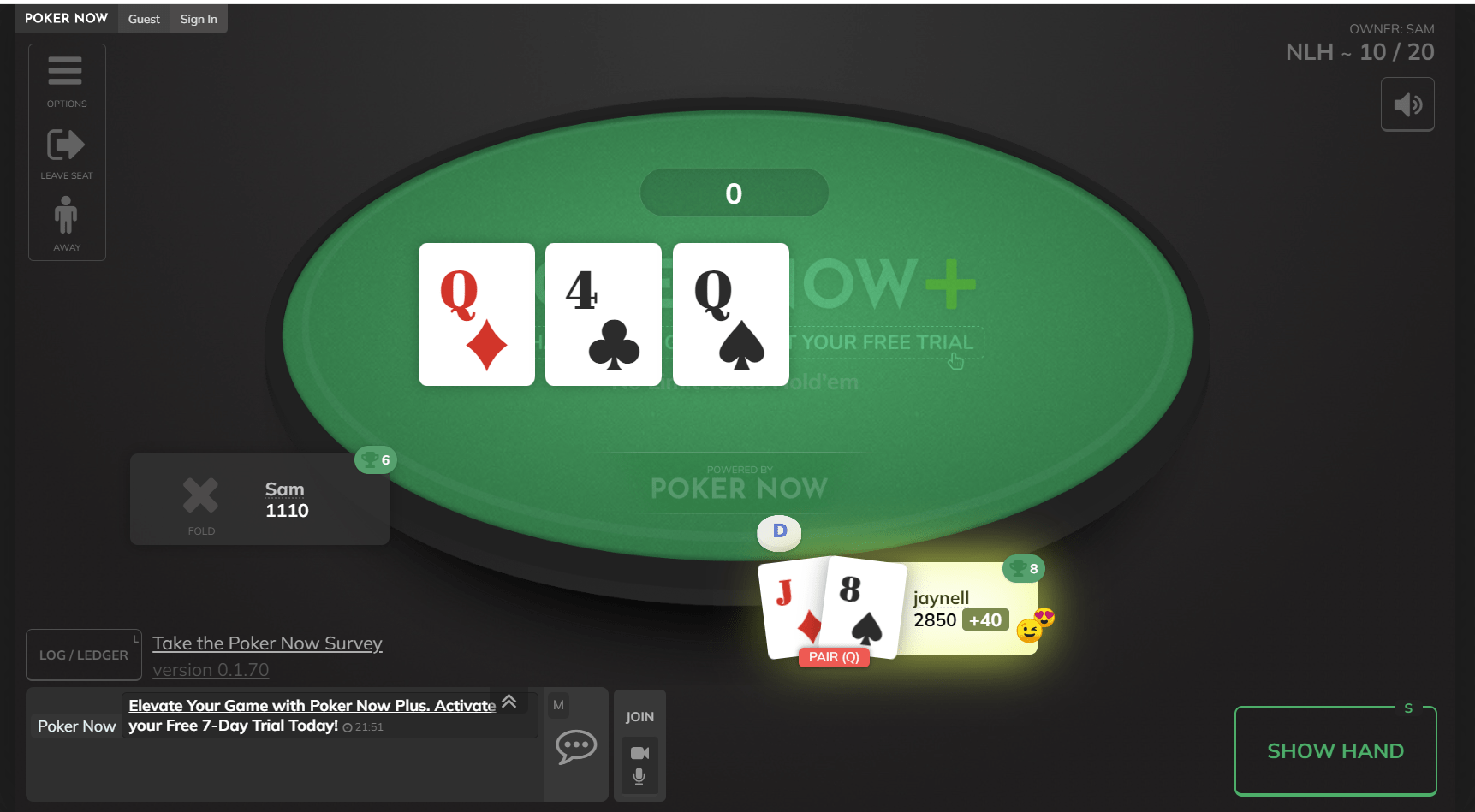For my critical play this week, I chose to play poker online 1v1 against my boyfriend. I actually had never played poker before, so I was very unfamiliar with the mechanics, and relied on the game platform to tell me which hands I had, since I didn’t know those either. I was actually winning for the majority of the game until my play pattern became obvious and I lost rapidly. As a game, poker’s origins are unknown for sure, but it has a long history in the United States. As a game of chance and skill, poker uniquely positions itself to potentially lead to addiction through its blend of strategic depth and probabilistic elements. This interplay between skill and luck creates a compelling dynamic that can suck in unwitting players and potentially lead to addictive behaviors.
First, the structure of poker itself contributes greatly to its potential for addiction. Unlike many other gambling games like Slots purely based on randomness, poker involves a substantial skill component that can be trained. Players aren’t just dependent on chance- rather they engage in strategic decision-making, bluffing, and reading opponents. This combination can lead to the “illusion of control,” where players believe their skills can significantly influence outcomes, even when luck does in fact play a considerable role. This illusion can fuel continued play, as players may feel that playing more and getting better will eventually yield consistent wins, despite the persistent element of chance.
 99% of players stop right before they hit it big!
99% of players stop right before they hit it big!
Following this, the variable reinforcement schedule inherent in poker is a key psychological draw for people. Wins and losses in poker aren’t predictable – instead, they are sporadic and unpredictable. This intermittent reinforcement contributes strongly to addictive behavior. An unpredictable schedule of rewards tends to produce high levels of engagement and persistence in behavior, driving gambling.
Comparatively, poker differs from other games of chance in several ways. Aforementioned other games like roulette or slot machines rely almost entirely on randomness, with little to no skill. The outcomes of these games are determined purely by chance, and players can’t influence the game with their own actions, despite all the people slapping the slots screen that you’ll see in casinos. Consequently, while these games can also be addictive, the addiction often stems more from getting excitement from random wins, and any sensory stimuli provided by the games as opposed to any perceived control or skill.
This is notably different from games like blackjack or sports betting that actually do involve a degree of skill and strategy, similar to poker, but often to a lesser extent. I also haven’t played blackjack, so I wouldn’t know firsthand, but according to documentation on gameplay it involves strategic decisions such as when to hit or stand but lacks deep strategic thinking as we can see in poker. Sports betting (not that I’ve done that either) involves knowledge and prediction skills but lacks the immediate feedback and ongoing decision-making processes found in poker.
Poker’s is also entwined with probability, which enhances its addictive potential. Players are constantly making decisions based on probability, as they are calculating pot odds, estimating opponent hands and making bets based on this analysis. Working with probability throughout the game can keep players invested in the game. The intellectual challenge of making correct probabilistic judgments can be deeply satisfying and can reinforce continued play – I noticed this on the rare occasion I “correctly” predicted that my hand was better.
Finally the social aspects of poker can make it more addictive. Poker must be played in social settings, unless practicing against a computer, whether in person or online. Players interact, compete, and can form communities – there are even widely televised competitions. There is social reinforcement from peers in addition to competitiveness with them, which can keep drawing people back to the table.
If there was one thing I could change about poker, I would implement rounds with mandatory breaks. For my game, it wouldn’t end until one of us lost all our money, and for a while it seemed like neither one of us would ever lose. In my opinion, cool-down periods during long games could therefore help reduce the risk of addiction. These intervals would give us time to reflect on our play, and let us think about whether to continue.



